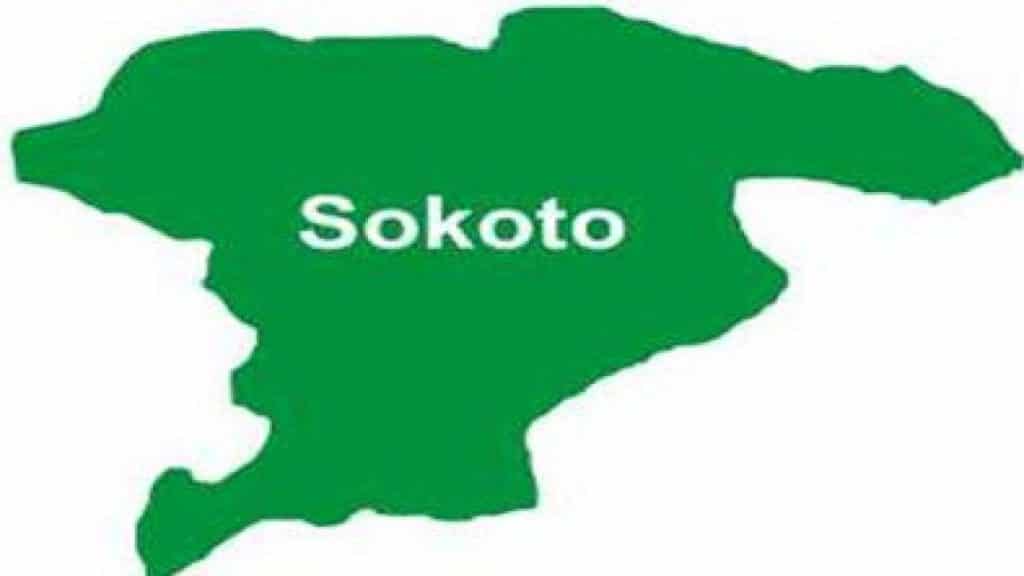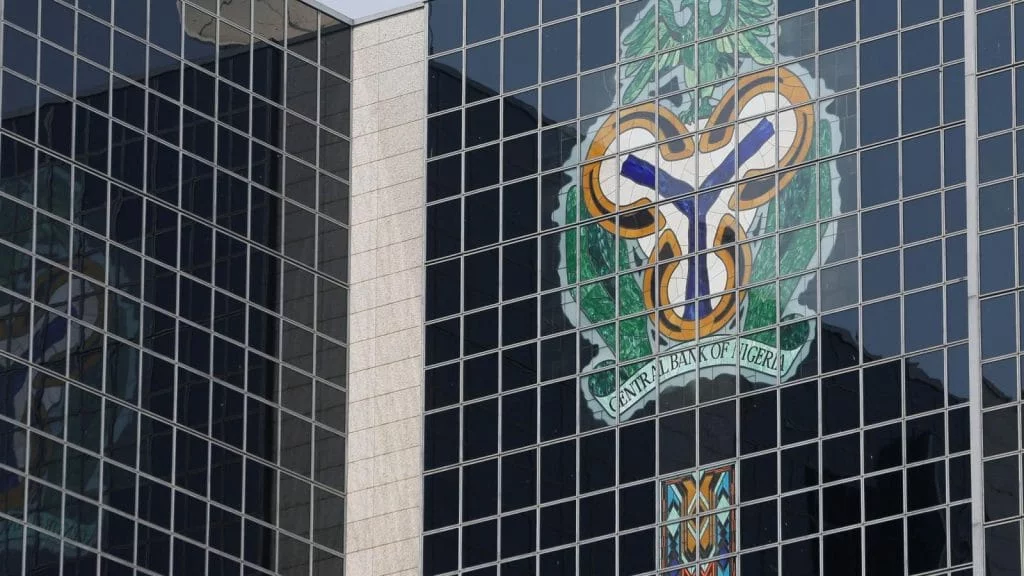Business
Bread Production: Bakers Demand Price Reduction On Flour And Other Ingredients
Published
8 months agoon
By
Ekwutos Blog
Bakers have called for a reduction in flour prices and urgent government intervention to address skyrocketing costs affecting their operations.
The Association of Master Bakers and Caterers of Nigeria has called on the Federal Government to intervene on the incessant increase in the prices of flour despite recent approval of duty-free importation waiver on wheat and maize.
The association therefore called on government to probe the activities of Flour Milling Association of Nigeria and sugar producers for causing the increases in the prices of bread.
The Chairman of the Association in Lagos State, Chief Matthew Ayoola and General Secretary, Abraham Alabi, who raised the observations during a press conference, proposed a reduction in the prices of wheat, flour and other ingredients used by bakers for smooth operation.
The event had as its theme, “Call For The Federal Government’s Urgent Intervention On The Incessant Increase Of Flour Prices Despite Recent Approval Of Duty-Free Importation Waiver On Wheat, Maize, Others.”
The text reads, “The record holds that Master Bakers and Caterers in Nigeria are the second largest employer of labour in Nigeria. This means that bakers’ shutdown of bakeries might pollute the society
“We sincerely appreciate the federal government of Nigeria upon the approval of a 150-day duty-free window to allow the importation of wheat, maize, and husked brown rice as part of measures to combat rising food inflation across the country effective August 1, 2024. However, the Nigeria Millers are yet to implement this on the price of their commodities.
“We are using this medium to call on the Federal Government to intervene in the operations of the Flour Milling Association of Nigeria (FMAN) as they are a major factor causing incessant increases in the price of wheat which falls to the high price of buying bread. It seems they intend to siphon money and milk the majority of Nigerians to live in abject poverty. Their current incessant increase of flour and sugar prices despite Government actions to ameliorate the cost of food items is a sabotage to the economy. The millers are taking advantage of government assistance to enrich themselves and make the good citizens starve.
“It’s imperative to note that in July the Federal Government of Nigeria announced the approval of a 150-day duty-free window to allow the importation of wheat, maize, and husked brown rice as part of measures to alleviate rising food inflation across the country. The government’s notable action should be to help bring down the prices of food items in the market, making some food items more accessible and affordable for the masses.
“However, our findings revealed some Millers chose to sell wheat to neighboring countries and some of them chose to ignore this waiver and instead continue to inflate the price of flour on a daily basis. This action has not only disregarded the Federal Government’s efforts to alleviate the suffering of Nigerians but also a severe blow to our industry. It’s a way of robbing innocent Nigerians. The millers did not consider our call for price reduction but rather advised us to inflate the price of bread more to inflict pain on the common man, which is an inhumane action to take.
“This constant increase in the price of flour by millers has made it impossible for Bakeries to operate and function smoothly which has also led to the shutdown of many bakeries and their staff being laid off. Lives are at stake when basic needs are scarce. Nigerians complain on a daily basis due to a lack of basic needs for survival and bread is one of them. The flour Millers are mounting pressure on human beings unnecessarily. Today, the price of flour has increased by 67,000 naira as against the last ten years’ price of 8,000.
“As flour is experiencing an increase so also are sugar, yeast, wheat, butter, nylon, and other ingredients needed, in fact, everything we use for production has increased. All the millers have declined our proposal for reduction of the cost of flour.
“We therefore call on the Federal Government to investigate the activities of the millers and sugar producers assess them and force them to do the needful because it seems they are more focused on making exorbitant and excess profits while they put the country at risk and chaos.
We appeal to the Ministry of Industry, trade, and Investment for urgent intervention in this matter.
“The smooth operations of bakers across the country are at risk due to the unjust practices of millers. Bakers need help to assist the masses cushion the effect of hunger in the land. Everything keeps increasing except workers’ income. Bread is common to Nigerians. It has an impact on both bakers and purchasers and there is a need for reduction of flour, wheat, and other materials. The inflating cost of bread saddens our hearts unfortunately the millers’ actions pose a greater challenge to us. For the public to experience adequate reduction of food items, the price of wheat must be reduced.
“Wheat is typically milled into flour which is then used to make a wide range of foods including bread, crumpets, muffins, noodles, pasta, biscuits, cakes, pastries, cereal bars, sweet and savory snack foods, crackers, crisp bread, sauces and confectionery (e.g. licorice).
“We request the Federal government to enforce the implementation of the waiver from the point of importation to the consumers for proper monitoring. The government should meet with the Millers on possible solutions to curb the incessant increase in the cost of flour and wheat. There should be a reduction in prices of wheat, flour, and other ingredients bakers use for smooth operations.
“We propose a reduced price range of between N30,000 and N40,000 per bag. To avoid a shutdown of bakers, the government’s 150-day duty-free window should reflect on the prices at which bakers purchase production commodities which would automatically reflect on the price at which Nigerians purchase breads and other consumables.
“We also demand a surplus in the distribution/accessibility of commodities to bakers. We also urged the Federal Government to take decisive actions to ensure that the waivers on wheat importations are enforced and that the millers comply with the intended purpose of reducing the cost of flour and wheat. The Federal government waiver should reflect the cost of food items bought.”
How much is better bread sold in your area?
Here’s N1,500 and above
Please leave a comment let’s talk about it.
You may like


Lagos: Court grants EFCC’s request for permanent forfeiture of suspect property


UK Tories consider replacing Kemi Badenoch as party leader after poor ratings


Osun Monarch and Pastor plead guilty of $4.2m Covid-19 Scam in US


Soldiers should arrest civilians wearing military uniform, not assault them – Nigerian Army official


St. Mary Major church: Tomb of Pope Francis opens to public


After meeting with Zelenskyy, Trump questions Putin’s willingness to stop Ukraine war
Business
Fire outbreak destroys onions worth millions in Sokoto community
Published
4 hours agoon
April 27, 2025By
Ekwutos Blog
A fire outbreak has destroyed onions worth millions of naira in Gidan-idi Kwakwazo community, Goronyo Local Government Area of Sokoto State.
This is according to the National Emergency Management Agency (NEMA) in a post on ita official X handle.
The incident, which occurred around 9:00 am on Friday, gutted several local storage facilities and completely razed about 60 barns of onions.
“Fortunately, no lives were lost and no injuries were reported. The exact cause of the fire remains unknown at the time of assessment,” it added.
According to NEMA, the exact cause of the fire remains unknown as at the time of the assessment.
The disaster is a major setback for the residents of the community, where onion farming is the primary source of livelihood.
Affected farmers described the incident as a devastating blow to their means of survival.
Business
Tinubu’s reforms not easy, delivering results – Cardoso
Published
4 hours agoon
April 27, 2025By
Ekwutos Blog
The governor of the Central Bank of Nigeria has said the reforms implemented by President Bola Ahmed Tinubu’s government in the past eighteen months are not easy but are delivering results.
This is according to Cardoso’s excerpts released upon the closure of the 2025 IMF/World Bank Spring Meetings in Washington, D.C., in the US.
He explained that Nigeria’s delegation attended the meetings to showcase economic reforms under President Bola Tinubu’s administration.
“Thanks to the steps taken over the past 18 months, we have strengthened our monetary buffers and positioned Nigeria to better withstand external shocks,” Cardoso said.
“To all Nigerians: these reforms are not easy, but they are delivering results. We have moved from a position of vulnerability towards one of growing strength, and our economic trajectory is beginning to turn positive”, he added.
Ekwutosblog recalls The Tinubu government rolled out several policies, including liberalisation of the foreign exchange market and fuel subsidy removal in 2023.
Cardoso introduced FX code, the Electronic Foreign Exchange System (EFEMS), and recapitalization of the financial system, among other reforms.
While the reforms under Cardoso remain noteworthy, Nigeria’s inflation dropped to 23.18 percent in March, and the interest rate stood at 27.50 percent in February 2025 amidst the rising cost of living in Nigeria.
Business
CBN raises over N1tn in fresh OMO auction
Published
7 hours agoon
April 27, 2025By
Ekwutos Blog
The Central Bank of Nigeria (CBN) raised a total of N1.008 trillion at its Open Market Operations (OMO) auction held on Friday, April 25, 2025.
This follows an overwhelming investor demand that led to a 102 percent oversubscription.
According to the apex bank data, the auction, which initially offered N500 billion across two maturities, attracted total bids of nearly N1.4 trillion.
This indicates that investors sought to take advantage of high-yield government instruments amid rising inflation and expanding money supply.
The move by the CBN to raise funds from OMO affirms its aggressive monetary tightening stance aimed at mopping up excess liquidity and cooling inflationary pressures that have persisted despite elevated interest rates and a record-high cash reserve ratio.
Accordingly, the most in-demand instrument at the auction was the 319-day OMO bill, maturing on March 10, 2026.
It drew a total subscription of N1.062 trillion, more than four times the CBN’s offer of N250 billion. The central bank eventually allotted N688.30 billion at a stop rate of 22.73 percent, with bid rates ranging between 20.39 percent and 23.75 percent.
Similarly, the 298-day bill, maturing on February 17, 2026, also performed strongly. It received bids totalling N329.54 billion versus the same N250 billion on offer. The CBN allotted N319.54 billion at a stop rate of 22.37 percent, with bid rates falling between 20.45 percent and 23.75 percent.
In total, the apex bank raised N1.008 trillion, more than double its initial offer.

Lagos: Court grants EFCC’s request for permanent forfeiture of suspect property

UK Tories consider replacing Kemi Badenoch as party leader after poor ratings

Osun Monarch and Pastor plead guilty of $4.2m Covid-19 Scam in US
Trending

 Trending6 months ago
Trending6 months agoNYA demands release of ‘abducted’ Imo chairman, preaches good governance
- Business6 months ago
US court acquits Air Peace boss, slams Mayfield $4000 fine

 Politics6 months ago
Politics6 months agoMexico’s new president causes concern just weeks before the US elections
- Entertainment6 months ago
Bobrisky transferred from Immigration to FCID, spends night behind bars
- Entertainment6 months ago
Bobrisky falls ill in police custody, rushed to hospital

 Politics6 months ago
Politics6 months agoRussia bans imports of agro-products from Kazakhstan after refusal to join BRICS

 Politics6 months ago
Politics6 months agoPutin invites 20 world leaders
- Politics1 year ago
Nigerian Senate passes Bill seeking the establishment of the South East Development Commission.

